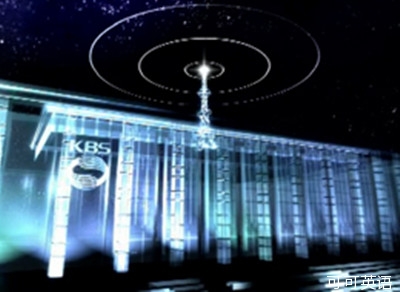商業(yè)報(bào)道
Clear Channel and radio broadcasting
清晰頻道通信公司與無線電廣播
Come stream with me
跟我去發(fā)展流式音頻吧
FRANK SINATRA knew he was getting a raw deal.
弗蘭克·辛納特拉知道自己受到的待遇不公正。
He could sing but he was not much of a songwriter,
他歌唱得好,但寫歌不在行;
so he never saw a cent when most of his 300 or so singles were played on American radio.
因此,雖然他大約300首單曲中的大部分在美國廣播電臺(tái)播放,他卻從來沒拿到過一分錢。
He spent years fruitlessly lobbying Congress to change a 1909 royalties law, which requires radio broadcasters to pay composers but not performers.
一項(xiàng)1909年的版權(quán)使用費(fèi)法要求電臺(tái)對歌曲作者付款,但不必對歌者付款。
 Broadcasters—a more formidable lobby than artists or record labels—have long fought any change, arguing that airtime gives singers free publicity.
Broadcasters—a more formidable lobby than artists or record labels—have long fought any change, arguing that airtime gives singers free publicity.
他多年游說國會(huì)修改這項(xiàng)法律,但毫無成效。廣播公司的游說比藝術(shù)家或唱片公司更強(qiáng)大;他們長期以來反對對這項(xiàng)法律的任何修改,理由是廣播免費(fèi)宣傳了歌唱家。
But this month the artists and labels have had some good news.
但本月歌手與唱片公司終于聽到了些好消息。
On June 5th Clear Channel Communications, America's largest radio broadcaster,announced a deal with Big Machine, a country-music label, to pay performance royalties on all its radio channels, terrestrial and digital.
美國最大的廣播公司清晰頻道6 月5日宣布與一家鄉(xiāng)村音樂唱片公司大機(jī)器達(dá)成協(xié)議,將為它播出的所有大機(jī)器名下的歌曲演出付費(fèi),無論歌曲是由地面頻道或數(shù)字頻道播出。
The plan is for Clear Channel to pay the label and its artists, who include Taylor Swift and Tim McGraw, a cut of its advertising revenue.
根據(jù)該計(jì)劃,清晰頻道將按廣告收入比例向大機(jī)器及它旗下的藝術(shù)家付費(fèi),其中包括泰勒?斯威夫特和蒂姆·麥克羅。
The agreement indicates that Clear Channel plans to invest more in digital radio, the part of the industry that is growing.
這項(xiàng)協(xié)議表明,清晰頻道計(jì)劃增加它在數(shù)字廣播上的投資,而正是數(shù)字廣播在廣播業(yè)中前景可觀。
But unlike terrestrial broadcasters, digital stations are obliged by a 1998 law to pay fees to artists whenever a song is played.
但與地面廣播公司不同的是,按照一項(xiàng)1998年的法律規(guī)定,無論何時(shí),只要數(shù)字電臺(tái)播出歌曲,它都必須向演唱者付費(fèi)。
This skewed system has made life painful for digital platforms trying to build an audience, such as Pandora, which pays out more than half of its revenue in music royalties.
這種扭曲的制度讓試圖招徠聽眾的數(shù)字平臺(tái)日子很不好過;僅以潘多拉為例,它收入的一半以上都用于支付音樂版權(quán)費(fèi)。
We can't make business work online with these rates, says Tim Westergren, founder and chief strategy officer of Pandora.
潘多拉的創(chuàng)建人、首席策略師蒂姆·威斯特格蘭說:版稅如此之高,我們沒法開展在線業(yè)務(wù)。
His firm has spent $50,000 this year lobbying Congress to change the law.
他的公司今年已在游說國會(huì)修改法律上花了5萬美元。
Only 2% of Clear Channel's listeners are digital and 98% terrestrial, so the deal looks costly.
清晰頻道的聽眾中只有2%來自數(shù)字廣播,另外的98%來自地面廣播,因此這項(xiàng)協(xié)議看上去代價(jià)很高。
But Big Machine supplies only a small proportion of Clear Channel's music.
但大機(jī)器的節(jié)目在清晰頻道播放的音樂中所占比例很小。
And paying a share of ad revenues hurts less than paying per song.
而且,交出一部分廣告收入比按歌付費(fèi)輕松。
The idea is to see what this does to the bottom line before negotiating with other labels.
清晰頻道的打算是,先看看這項(xiàng)協(xié)議對凈收入的影響后再與其他唱片公司談判。
The deal may also reflect anxiety on Clear Channel's part.
這項(xiàng)協(xié)議可能也反映了清晰頻道方面的擔(dān)憂。
Its leveraged buy-out in 2008, just before the ad market collapsed, has left it heavily in hock.
2008年,它在廣告市場崩潰前舉債收購,這使之負(fù)債沉重。
It has enough cash to keep things humming for a few years, but in 2016 debts of $12.1 billion fall due.
幾年內(nèi)它尚有足夠的資金周轉(zhuǎn),但2016年有一筆121億美元的債務(wù)到期。
The company will probably need a maturity extension.
該公司或?qū)⑿枰悠趦攤?/div>
There's no way to pay that, says Melissa Link of Fitch, a ratings agency.
惠譽(yù)評(píng)級(jí)公司的梅利莎?林克說:錢他們肯定還不了,
They need growth.
他們需要發(fā)展。
All eyes are now watching to see whether Clear Channel can make money from digital radio.
人人都在關(guān)注清晰頻道是否能通過數(shù)字電臺(tái)賺錢。
It already has iHeartRadio, an internet network launched in 2008, which relies on ads rather than subscriptions.
他們已在2008年開通了線上網(wǎng)站網(wǎng)絡(luò)電臺(tái),該網(wǎng)站靠廣告而不是靠聽眾付費(fèi)賺錢。
In September 2011 the network began offering customisable playlists, like Pandora.
2011年9月網(wǎng)絡(luò)電臺(tái)開始像潘多拉一樣提供可由聽眾點(diǎn)播的播放列表,表中包括1100萬首歌。
It offers 11m songs, compared with Pandora's 900,000—but has only a tenth of its rival's listeners.
相比之下潘多拉的播放列表中只有90萬首歌,但聽眾卻是網(wǎng)絡(luò)電臺(tái)的10倍。
The big source of growth is among smartphone buyers, who account for 70% of Pandora's streaming.
智能電話的擁有者是發(fā)展聽眾的重大來源,他們占潘多拉聽眾的70%。
Yet Pandora also relies heavily on advertising, and mobiles have proven difficult for ad sales.
但潘多拉對廣告的依賴程度也很高,而事實(shí)業(yè)已證明,手機(jī)廣告作用不明顯。
Second only to television in its reach, terrestrial radio does not face much of a threat from digital, especially given the royalty burden on digital providers.
受眾僅次于電視的地面電臺(tái)沒有受到數(shù)字電臺(tái)的威脅,考慮到數(shù)字電臺(tái)需要付出的高額版權(quán)使用費(fèi)后尤其如此。
Air-wave radio has held on to listeners, because it remains free and convenient, particularly for car-bound commuters.
無線電臺(tái)能夠抓住聽眾,因?yàn)樗鼈兊墓?jié)目依舊免費(fèi),而且特別方便駕車上下班的人。
Though carmakers are starting to integrate digital-radio platforms, streaming audio can eat up most mobile data plans.
盡管汽車制造商正開始在汽車收音機(jī)里添加數(shù)字無線電平臺(tái),但流式音頻能擊敗大部分移動(dòng)數(shù)據(jù)計(jì)劃。
It is not expected to steal many listeners soon.
人們認(rèn)為流式音頻還不會(huì)很快搶走大量聽眾,
But for artists, the Clear Channel deal has hit the right note.
但對藝術(shù)家來說,清晰頻道的協(xié)議效果良好。
 Broadcasters—a more formidable lobby than artists or record labels—have long fought any change, arguing that airtime gives singers free publicity.
Broadcasters—a more formidable lobby than artists or record labels—have long fought any change, arguing that airtime gives singers free publicity.
 Broadcasters—a more formidable lobby than artists or record labels—have long fought any change, arguing that airtime gives singers free publicity.
Broadcasters—a more formidable lobby than artists or record labels—have long fought any change, arguing that airtime gives singers free publicity.